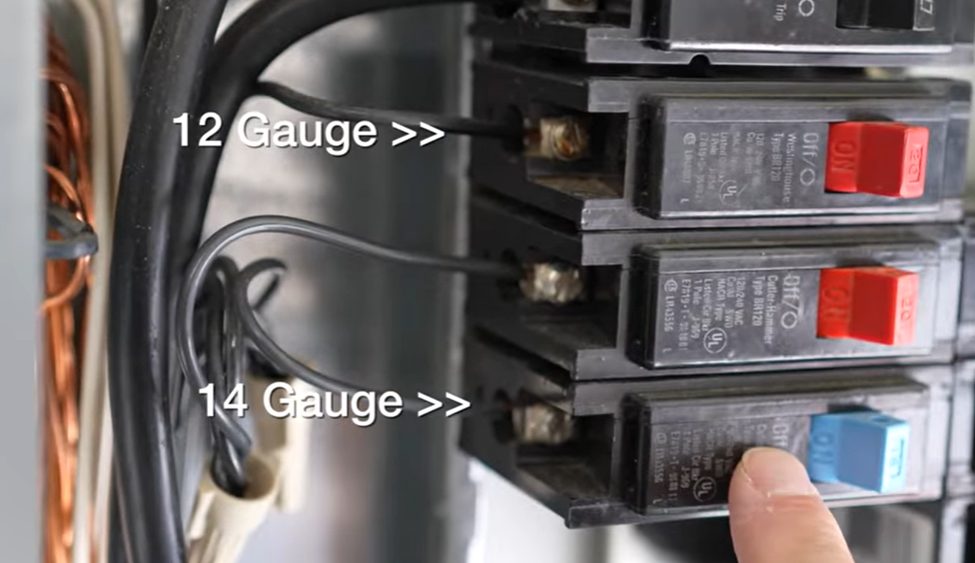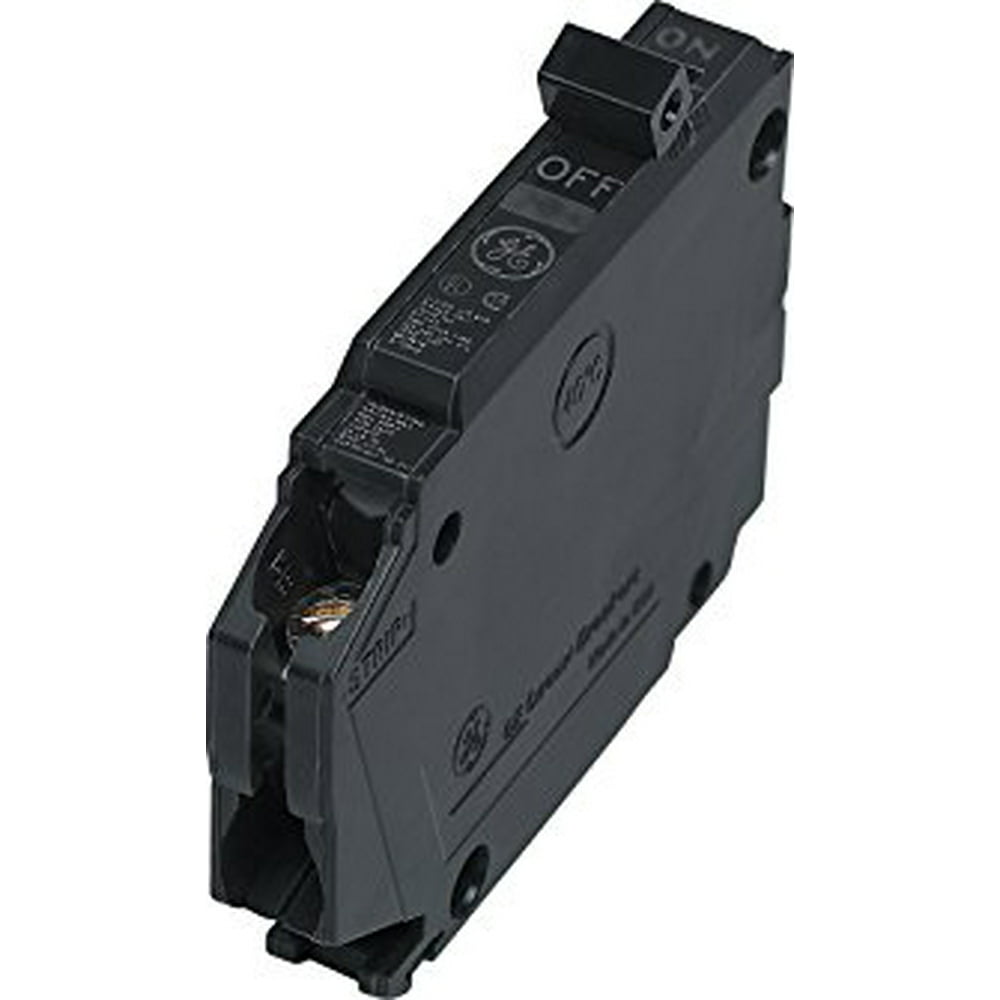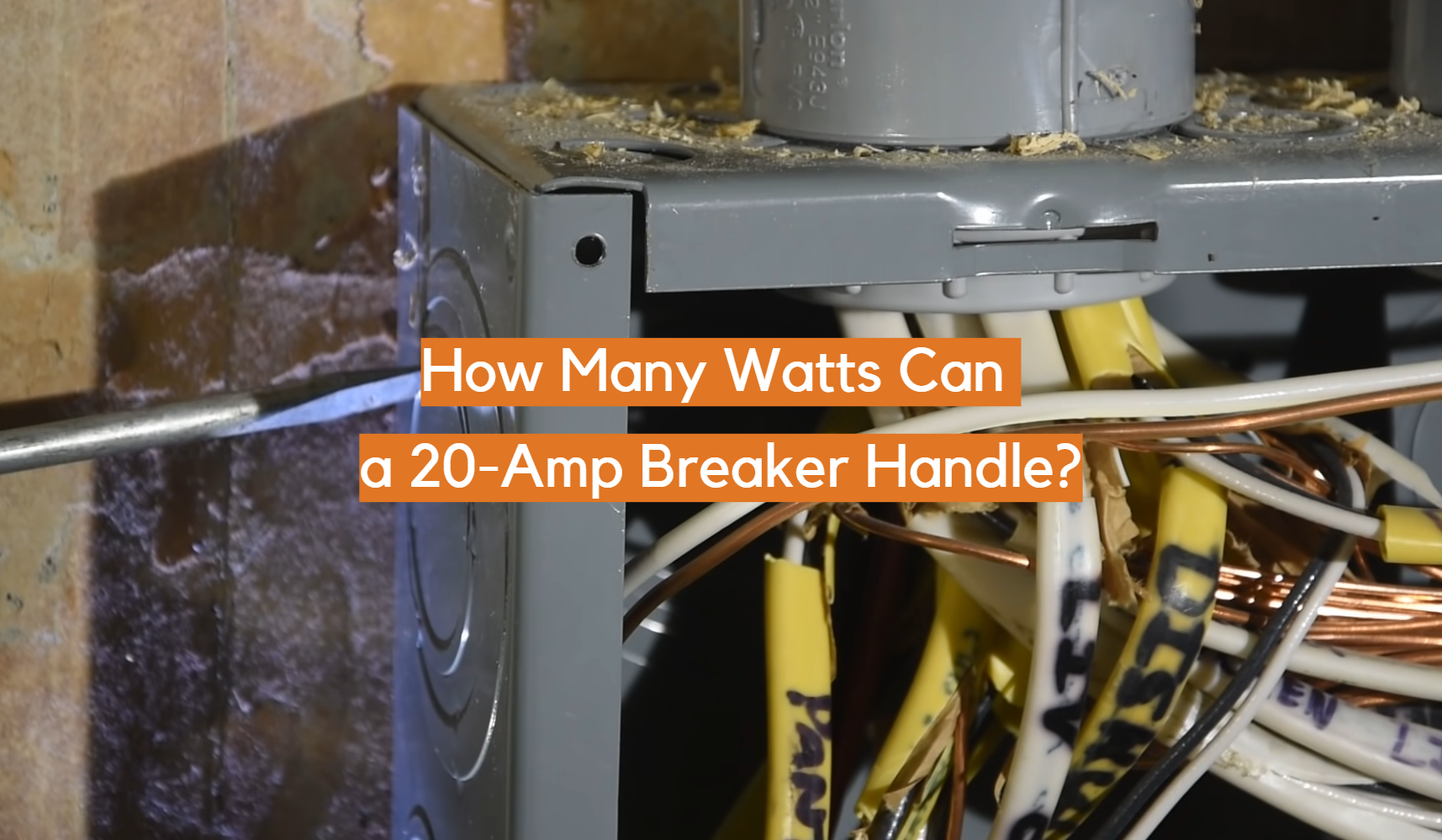Casual Info About Can I Replace A 15 Amp With 20 Breaker

Thinking About Swapping Breakers? Let's Talk Amps
1. Understanding the Basics
So, you're staring at your electrical panel, contemplating an upgrade. Maybe your 15 amp breaker keeps tripping, and the siren song of a 20 amp breaker is sounding sweet. Before you grab your screwdriver and dive in, let's have a heart-to-heart. Electricity isn't something to mess with lightly; safety first, always! We need to consider a few crucial elements. Are the wires connected to that breaker hefty enough to handle the extra juice? What kind of appliances are causing the overload? These questions are very important before we consider any swapping of breakers.
Think of it like this: your electrical system is like a highway. Amps are the cars, and the wiring is the road. If you suddenly decide to let bigger trucks (more amps) onto a road that's only designed for smaller cars, things are going to get messy. Overheating wires, potential fires — not a pretty picture, right? So, let's pump the brakes for a moment and figure out if swapping that breaker is a good idea or a recipe for disaster. Keep in mind you are potentially risking a fire if you overload the system.
It all boils down to the wiring. The thickness (or gauge) of the wire dictates how much current it can safely carry. 15 amp circuits typically use 14-gauge wire, while 20 amp circuits need at least 12-gauge wire (lower number means thicker wire). Finding out the wire gauge is not something to be taken lightly. This is a very important step in determining if you can replace the breaker. If your existing wiring isn't up to snuff, swapping to a higher amp breaker is a big no-no. It is paramount to get this step correct.
Think of wire gauge like pipe size. A small pipe (14-gauge wire) can only carry so much water. If you try to force too much water (amps) through it, the pipe will burst (overheat). Likewise, an undersized wire will overheat if it is carrying too many amps. Its just basic physics, not rocket science, but critical to electrical safety. Its not about just swapping the breaker out. Its about understanding the entire electrical circuit.

15 Amp Vs 20
Can I Replace a 15 Amp with a 20 Amp Breaker? The Crucial Considerations
2. The Wire Gauge Dictates Everything
Okay, let's get to the heart of the matter: Can I replace a 15 amp with a 20 amp breaker? The short answer is: maybe, but probably not. A 15-amp breaker is designed to protect 14-gauge wires, whereas a 20-amp breaker is designed to protect 12-gauge wires. Replacing the breaker without upgrading the wire is a fire hazard waiting to happen. Imagine trying to sprint a marathon; your body just isn't built for it. The same is true for your electrical wiring.
Essentially, the breaker's job is to trip (shut off) when the circuit is overloaded, preventing the wires from overheating and potentially causing a fire. If you put in a higher amp breaker, the wires can overheat without the breaker tripping, leading to a very dangerous situation. A 20-amp breaker on a 15-amp circuit is similar to removing the governor from a car engine. Sure, you might get a little more power in the short term, but eventually, something is going to break down in spectacular fashion. The breaker is a safety mechanism. Don't remove it or replace it with the wrong value!
Here's a simple test: If you're constantly tripping a 15-amp breaker, it doesn't necessarily mean you need a 20-amp breaker. It could simply mean that you're overloading the circuit with too many appliances. Try unplugging some devices and see if the problem resolves itself. You may just be trying to run too much off the circuit. Try a different outlet on a different circuit if you continue to overload your electrical system.
Before you even think about changing a breaker, turn off the power to the circuit at the main breaker panel. Then, carefully remove the outlet or light switch connected to that circuit and check the wire gauge printed on the wire itself. If it's 14-gauge, stick with the 15-amp breaker. If it's 12-gauge (or thicker!), then you might be able to upgrade, but you should still consult with a qualified electrician. This is a very important step to make sure everything is installed correctly.

Replace 15 Amp Breaker With 20
Why is My 15 Amp Breaker Tripping? Let's Troubleshoot!
3. Identifying the Root Cause
So, your 15 amp breaker keeps tripping. Annoying, right? But before you jump to the conclusion that you need a bigger breaker, let's play detective and figure out why it's tripping in the first place. There are a few common culprits to consider. The first, and most common, reason is simply overloading the circuit. Too many devices drawing too much power at the same time. Time to unplug some of your gadgets or spread them out across multiple outlets!
Another possibility is a short circuit. This happens when a bare wire comes into contact with another bare wire or a grounded metal surface. Short circuits are often accompanied by a loud pop or a burning smell. If you suspect a short circuit, turn off the breaker immediately and call an electrician. Dont attempt to fix it yourself unless you are absolutely sure you know what youre doing. If there is fire or the smell of smoke call your local fire department!
A ground fault is another potential cause. This occurs when electricity leaks out of its intended path and finds an unintended path to the ground. Ground faults can be tricky to diagnose, but they're often caused by damaged or frayed wiring. A ground fault circuit interrupter (GFCI) outlet can help prevent electric shock in these situations. Consider installing GFCI outlets in areas like bathrooms and kitchens where water is present.
Sometimes, the breaker itself is simply faulty. Breakers can wear out over time and become more sensitive, tripping even when the circuit isn't actually overloaded. If you've ruled out all other possibilities, it might be time to replace the breaker with a new one of the same amperage. However, before you do, it's always a good idea to have an electrician inspect your electrical panel to make sure everything is in good working order. It is better to be safe than sorry when dealing with electrical problems.

How Many Watts Can A 20Amp Breaker Handle? ElectronicsHacks
The Importance of Calling a Qualified Electrician
4. Safety Should Be Your Top Priority
Look, I get it. DIY projects can be fun and rewarding. But when it comes to electricity, it's always best to err on the side of caution. Messing with your electrical system without proper knowledge and training can be incredibly dangerous, potentially leading to serious injury, fire, or even death. That's why I strongly recommend consulting with a qualified electrician before making any changes to your electrical panel.
A licensed electrician has the expertise to assess your electrical system, identify the underlying cause of your breaker tripping issues, and recommend the safest and most appropriate solution. They can also ensure that any electrical work is done in accordance with local codes and regulations. Remember that a licensed electrician is your friend! They are there to help keep you and your family safe.
Think of an electrician as a doctor for your electrical system. You wouldn't perform surgery on yourself, would you? (Please say no!) Likewise, you shouldn't attempt to tackle complex electrical problems without the help of a professional. Consider your houses wiring system like the veins and arteries of the human body. If you are unsure of something, it is always important to seek professional help.
Even if you're just thinking about "Can I replace a 15 amp with a 20 amp breaker," a quick call to an electrician can save you a lot of trouble (and potential danger) down the road. They can inspect your wiring, determine if an upgrade is even possible, and perform the work safely and efficiently. Trust me, the peace of mind is worth the cost. Remember to check if they are licensed and fully insured before hiring an electrician to perform the work.
/installing-a-240-volt-circuit-breaker-1824649-hero-11c6b7fe534043a381b30d93bdd882a2.jpg?strip=all)
How To Tell If You Have A 20 Amp Circuit
Frequently Asked Questions (FAQs) About Breaker Swapping
5. Answering Your Burning Questions
Still have questions about breaker swapping? No problem! Here are a few frequently asked questions to help clear things up:
Q: What happens if I put a 20 amp breaker on a 15 amp circuit?
A: Putting a 20 amp breaker on a 15 amp circuit is extremely dangerous. The wiring isn't designed to handle that much current, and it can overheat, leading to a fire. The breaker won't trip when it should, and your wires could melt before the breaker does. Please don't do this under any circumstances!
Q: How do I know what size breaker to use?
A: The size of the breaker should match the gauge of the wiring. 14-gauge wire requires a 15 amp breaker, 12-gauge wire requires a 20 amp breaker, and so on. Always check the wire gauge before replacing a breaker to ensure you're using the correct size. If in doubt, consult with a qualified electrician.
Q: My breaker keeps tripping even when I'm not using many appliances. What could be the problem?
A: Several factors could be causing this. It could be a faulty breaker, a loose connection, a short circuit, or a ground fault. It's best to have an electrician inspect your electrical system to diagnose the problem and recommend the appropriate solution. Dont just keep resetting the breaker. This is a sign that something is going on that needs immediate assistance.
Q: Is it okay to use an adapter to plug a 20 amp appliance into a 15 amp outlet?
A: No, it is not okay. Appliances that require 20-amp circuits should not be plugged into 15-amp circuits. If you are doing this, you risk overloading the 15-amp circuit and creating a fire hazard. Its best to consult a qualified electrician to install a dedicated 20-amp circuit for the appliance if needed.